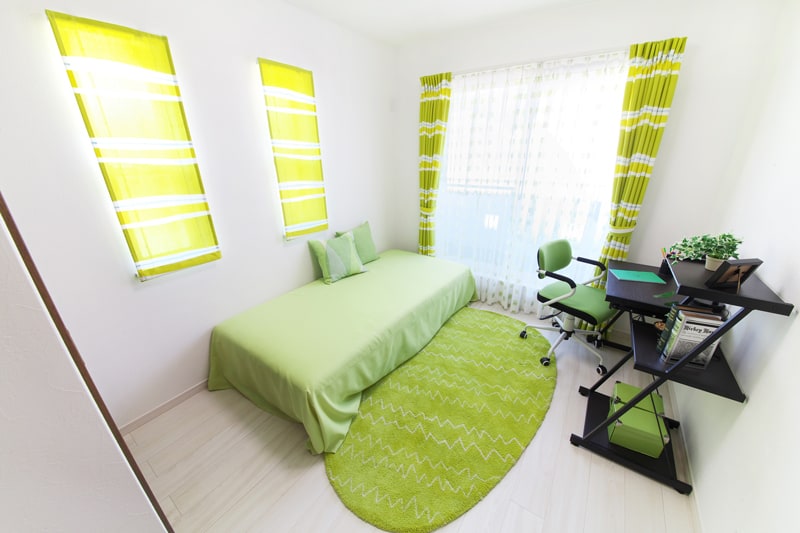Apartment, Share House and Co. – Housing in Japan

by Madelaine
Looking for a place? Depending on your preferences and budget there are plenty of accommodation options. If you want to live on your own, you will likely look for a マンション (mansion) or an アパート (apartment).
If you are hoping to make friends quickly a シェアハウス (share house) might be for you. Dorms or company housing are another option.
コンテンツ
Apartment: Living by yourself
Getting your own apartment means being your own boss in your very own space. This option is usually only available to people who are staying in Japan long term and have some confidence in their Japanese skills (or a lot of money to rent some of the short-term furnished apartments for foreigners).
If you rent an apartment your realtor will give you most of the information on which services to contact for insurance, signing up for utilities and such, but it will require a couple of letters and calls on your part to get everything set up.
| PRO | CONTRA | privacy and freedom | high move-in costs |
|---|---|
| more location options | long-term contracts (usually 2 years ) |
| No fixed utility payments, only pay what you used | need to contract electricity, gas and water by yourself |
| can furnish it to match your taste and needs | unfurnished |
| no staff coming to check in unnanounced | no staff to help with problems |
| / | proof of employment or regular income necessary |
You can also find “monthly mansions”, fully furnished apartments for foreigners that can be rented on a monthly basis. These are usually aimed at people on business trips, so the costs can be quite high. Alternatively, share-house providers sometimes offer nice, clean and furnished apartments for a smaller budget.
If you want to maintain a good cost-performance, consider the duration of the stay and the difference in utilities, move-in and furniture cost, between private and serviced apartment.
Share House: Being part of a group
You want to make friends early on? You hope to practice your Japanese skills around the house?
Then a share house might be for you. You will encounter two main types of share houses. The first will be two-story houses where you share common spaces kitchen, bathroom and living room etc. with your house-mates. The second will be bigger apartment or hotel-like buildings, which are often equipped with big baths, theater rooms, gyms, and other types of common spaces. Private rooms (doors can be locked) are widely available, but share-houses also offer double or dormitory type rooms for people trying to save a buck.
There will be share houses exclusively for foreigners, and those where foreigners and Japanese can live together. Additionally, there are also all-female share-houses, ones with age limitations, etc. Often you will be able to see the nationality and even the age of the current residents so you can check if it is a good fit for you. Shop around for one you will feel comfortable in.
Just google for “share-house” and you will see the big-time operators.
Websites like Tokyo Sharehouse also let you search by area, regardless of owner.
| PRO | CONTRA |
|---|---|
| cheaper than apartments in the same area (due to low move-in and move-out costs) | might not be allowed to have friends/other gender over (varies, check share-house rules) |
| can be rented from abroad (I got picked up by the staff at the station upon arrival) | Friends staying overnight (if allowed) costs extra (check rules on prices and duration) |
| shared spaces and items available | Less privacy, less private space |
| age restrictions (only 20-somethings etc.) | age restrictions (it really depends) |
| easy paperwork, no guarantor needed | / |
| short term rent possible | / |
| foreign-language speaking staff available | / |
| furnished | / |
| utilities included in your monthly payment | / |
| use your language skills and make friends | / |
For an idea of what types of room setups are available, here is a quick overview.
- Apartment
- You can actually rent apartments with your own bathroom and kitchen in a share house! It won’t be cheap, but you have all the benefits in terms of service and flexibility a share house offers while still getting all the comforts of an apartment.
- Single rooms
- A little similar to an apartment. You have your bedroom you can lock, but you share all the common spaces.
- Share room
- Typically, you will share your lockable bedroom with another person.
- Dormitory
- Here you will find bunk beds, the number of people varies by property so check the details. You will encounter properties offering 4-people dorm rooms, while others may fit 16 people.
- Compartments
- Imagine a spacious capsule hotel or a luxurious bunk bed. Similar to a dorm room, but your personal space comes with a door or curtain you can close and even some space for a drawer or desk next to the mattress. Private space at budget cost.
- Semi-private
- It resembles a small private room, except that the walls don’t go all the way up to the ceiling. They may be open under the ceiling to facilitate air-flow, or it might just be partitions that give you a private area within a larger room. Due to the limited space it is not uncommon for these types to have loft beds under which your desk will be placed.
- The basics:
- ■ Western vs. Japanese style room
■ Furnished vs. unfurnished
■ Electricity vs. gas - The financial:
- ■ Regardless of housing type, rental prices drop as soon as you leave Tokyo’s 23 wards!
■ Move in the off-season, especially Summer (everyone moves in February and March for new jobs and schools)
■ Is rent within 30-40% of your monthly budget?
■ Total move-in cost (incl. first month’s rent, deposit, etc.)
■ Contract duration and contract renewal fee
■ Move-out cost (cleaning fee, deposit return conditions) - The rest:
- ■ Distance to station and nearby train lines
■ Washing machine location
■ Nearest supermarket
■ Etc.
Dorms and Company housing: Living together
Dorms and housing provided by your workplace or school are usually (one of) the cheapest accommodations available.
While living together with classmates or coworkers is usually good value, the locations are not always convenient. My former Japanese school for example, has various dorms. Some buildings are on the same street as the school, some more than a one-hour train ride from school. They have a few private rooms, but most are shared rooms that accommodate 2-4 people.
The company housing I have seen so far provides individual apartments, including kitchen and bathroom. The only difference to a normal apartment is that your neighbors will be colleagues.
These accommodations are especially popular with people just starting their working career and those who just moved to Japan.
Both options are incredibly convenient, as your school or company will handle all the procedures, you can get a place ahead on time and they offer some of the best deals out there. If this sounds like something you are interested in, try to inquire directly, as availability is limited, and early birds might take up all the spots.
Other things to consider when renting
Which type of housing is better for you really depends solely on your priorities here in Japan.
I hope you found some information in this article you might have overlooked otherwise.
Leave a comment, if you have something else to add to our lists!
Recommended Posts

May Sickness: A Japanese Phenomenon
10 5月 2021 - Daily Life, Life


